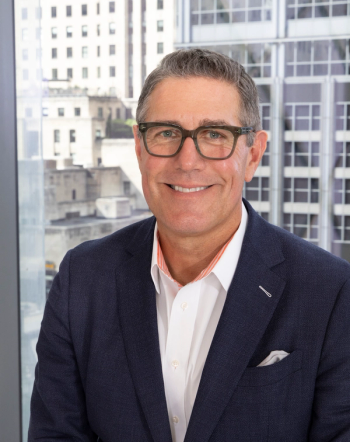
Patients Getting Weight Loss Information from Advertising as Opposed to Doctors: New Study Suggests
A study detailing how patients struggling with obesity interact with the life sciences industry suggests that they don’t get weight loss information from their doctors.
Phreesia and Kick Health recently released a study detailing the diversity of experiences that patients struggling with obesity have when interacting with the healthcare system.1 According to the study, the ways that these patients feel they are perceived by the industry and the ways that treatment options are presented to them can have a significant impact on how they develop their healthcare journey in relation to obesity.
The study surveyed a variety of patients with body mass indexes (BMI) from 27-29.9%, 30-30.9%, and BMIs of over 40%. The participants also included a variety of races, ethnicities, and socio-economic conditions in order to account for the full spectrum of patient experiences. The survey showed that as BMI increased, patients were more likely to show concern for their BMI in regard to how it impacted their health.
However, when it comes to interacting with the healthcare industry, the results showed that many of these patients aren’t necessarily looking for medications to decrease their BMI.
“Obesity medications like Novo Nordisk’s Wegovy™ and Eli Lilly’s Zepbound™ have gained popularity, but lifestyle changes remain the dominant choice for many patients,” the study says. “More than 80% of patients who expressed concern about their weight as it relates to their health had made lifestyle changes in the past. Of these patients, three-quarters (75%) of those with a BMI from 27 to 29.9, and about 65% of those with a BMI of 30 or greater, still relied on this method to manage their weight.”
Most importantly, the results suggest that when it comes to interacting with the healthcare industry, a significant number of respondents across the board said they had not discussed weight with their doctors. A variety of reasons were listed, such as patients feeling that they’d rather make lifestyles changes on their own or feeling uncomfortable discussing their weight with their doctors.
However, a significant number of respondents said that while they had had conversations with their doctors about their weight, they were the ones to initiate the conversations. However, these conversations were only likely to continue if the doctor brought up the topic first.
According to the study, “Only a minority of concerned patients reported that their doctors collaborated with them to develop a comprehensive weight-management plan, indicating room for improvement when it comes to tailoring personalized weight-management strategies. This opportunity is just one of many for healthcare providers to engage more effectively with their patients by customizing support for overweight and obese patients who view and relate to their weight in a variety of different ways.”
Patients with higher BMIs said they were more likely to seek out information about weight management. These sources, however, did not necessarily include their doctors. Patients discussed getting information from a variety of sources, such as advertisements, commercial weight-loss programs, and even social media platforms. The accuracy of these sources can vary significantly.
According to the study, “Trust in pharmaceutical ads ticked up significantly among people with a BMI of 40 or greater who were concerned about their weight. About half or more concerned patients reported seeing advertisements related to weight-management products or medications ‘all the time’ or ‘most of the time’ compared to about one in three of patients who were not concerned about their weight. Of the concerned patients, nearly six in 10 felt that these sources broadly represent the experiences of people who are overweight or obese.”
Source
- Closing the Gap: Tailoring Support for Patients with Obesity. Phreesia. https://lifesciences.phreesia.com/reports/closing-the-gap-tailoring-support-for-patients-with-obesity/
Newsletter
Lead with insight with the Pharmaceutical Executive newsletter, featuring strategic analysis, leadership trends, and market intelligence for biopharma decision-makers.




